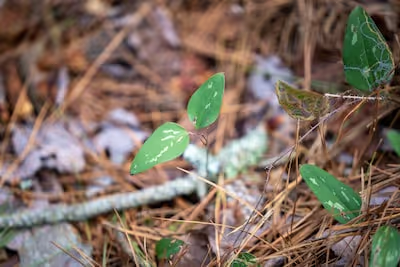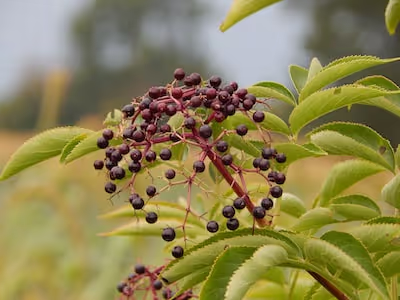Growing Blueberry Bushes for Sweet, Nutritious Fruit

Growing Blueberry
Growing blueberry bushes supplies your patch with fruit packed in antioxidants and flavor. Growing blueberry plants requires acidic soil (pH 4.5–5.5), ample sunlight, and steady moisture. Growing blueberry is simple: choose the right variety, prep your planting site, and nurture them season by season to harvest berries worth bragging about. Read on for easy tips to ensure a rewardingly delicious homegrown blueberry bounty.
Cheatsheet: Blueberry Bush Success Steps & Essentials
🌱 Variety Selection
- Highbush: Best for temperate zones (USDA 4-7, -34°C to -12°C/ -30°F to 10°F)
- Lowbush: Hardy, compact (USDA 3-6, -40°C to -18°C/ -40°F to 0°F)
- Rabbiteye: Heat-tolerant (USDA 7-9, -17°C to 4°C/ 0°F to 40°F)
- Mix types for pollination, bigger crops
🌞 Site & Soil
- Full sun (6+ hrs/day)
- Acidic soil (pH 4.5-5.5)
- Good drainage, high organic matter
- Space bushes 4-5 ft (1.2-1.5 m) apart
🕒 Planting Steps
- Test soil pH & amend if needed
- Dig hole 2x root ball width, 18 in (45 cm) deep
- Mix peat moss/compost into soil
- Plant so crown is level with soil surface
- Backfill, water deeply
- Mulch 2-4 in (5-10 cm) with pine needles or bark
💧 Water & Feed
- Keep soil moist, not soggy: 1-2 in (2.5-5 cm)/week
- Feed with acidic fertilizer (azalea/camellia type) in spring
- Mulch yearly to retain moisture, suppress weeds
✂️ Pruning & Care
- Remove flower buds first year for root growth
- Prune late winter: clear weak, crowded stems
- Bird netting protects ripening fruit
🍇 Harvest
- Berries ripen mid-late summer; pick when deep blue
- Yields rise after 3 years; mature bush: 5-10 lbs (2.2-4.5 kg)/year
💪 Nutrition & Benefits
- High in antioxidants (ORAC: 4,669 µmol TE/100g)
- Supports brain, heart, and immune health
- Homegrown = fresher, higher vitamin C
🧰 Tools and Products You'll Need
- pH test kit
- Acidic fertilizer
- Peat moss or compost
- Pine mulch
- Bird netting
- Shovel
- Bypass pruners
- Watering can or hose
-
Growing Blueberry: site, soil, and my hard-learned rules
I planted my first blueberries too close to a maple and fed the tree for two seasons, so learn from my bruises. For steady crops, give them full sun, wind protection, and space where roots will not compete with thirsty giants.
Climate fit and chill hours
Chill hours are the cool hours between 32 and 45 F, 0 and 7 C, that reset a plant’s clock for spring bloom. Match type to climate: northern highbush for cool zones, southern highbush and rabbiteye for heat, with half-highs for cold pockets.
Most northern highbush need roughly 800 to 1,000 chill hours, southern highbush far less, sometimes 200 to 400. Rabbiteye thrives in long summers and shrugs at heat that wilts northern types.
Soil chemistry: pH and media that blueberries actually like
Soil pH must sit between 4.5 and 5.5 for reliable performance. I keep new beds at pH 5.0 with elemental sulfur and build them with pine bark fines, peat, and coarse sand for air and drainage.
Blueberry roots are fine and shallow, so soggy clay drowns them. Use raised beds 8 to 12 inches, 20 to 30 cm, high, and mix 50 percent aged pine bark, 30 percent peat or coco, and 20 percent coarse mineral grit.
If leaves yellow with green veins, that is iron chlorosis from high pH. Correct the soil with sulfur, water with rain or acidified water, then use chelated iron as a short-term fix.
Water and mulch strategy
Plan for 1 to 1.5 inches, 25 to 38 mm, of water a week from rain or drip, more in sandy soil during fruit swell. I run 0.5 gph emitters for long, gentle soaks and shut them off ahead of rain.
Lay 3 to 4 inches, 7.5 to 10 cm, of pine needles or shredded bark to cool roots, reduce weeds, and buffer pH. Mulch also smooths out the feast-or-famine watering that blueberries hate.
Planting: timing, spacing, and containers
Plant in early spring once soil is workable, or autumn in mild climates where summers cook. Set crowns a touch shallow so the soil settles without burying canes.
- Spacing: highbush 4 to 5 ft, 1.2 to 1.5 m, rabbiteye 5 to 6 ft, 1.5 to 1.8 m, half-high 3 to 4 ft, 0.9 to 1.2 m.
- Row spacing: 8 to 10 ft, 2.4 to 3 m, for airflow and picking access.
- Containers: 15 to 25 gallons, 57 to 95 L, with an acidic mix and side slits for air pruning.
Feeding the right way
Ammonium-based fertilizer fuels blueberries without kicking pH upward, so I favor ammonium sulfate or acid-formulated slow release feeds. Avoid nitrate forms that push pH in the wrong direction and burn tender roots.
Split feedings work: one at budbreak, another after fruit set, then stop by midsummer. I inoculate new beds with ericoid mycorrhizae, which boosts fine-root foraging in poor soils.
Pollination, bees, and yield bumps
Cross-pollination improves berry size and yield, so plant two or three compatible cultivars of the same type. Keep bloom insect-safe by skipping insecticides during open flowers and mowing clover before bees pile in.
Top picks: a quick cultivar short list for Growing Blueberry
- Northern highbush: ‘Duke’ early, firm and bright; ‘Bluecrop’ midseason workhorse; ‘Legacy’ extended harvest and flavor; ‘Jersey’ reliable late.
- Southern highbush: ‘Misty’ early and heat tolerant; ‘Star’ uniform ripening; ‘Jewel’ heavy set; ‘Emerald’ large berries in warm zones.
- Rabbiteye: ‘Brightwell’ sweet and productive; ‘Tifblue’ classic late; ‘Powderblue’ consistent; ‘Premier’ early rabbiteye with punchy flavor.
- Half-high and cold-hardy spots: ‘Northblue’, ‘Northcountry’, ‘Chippewa’. ‘Patriot’ is hardy for northern highbush beds with tricky soils.
Pruning that pays, year by year
- Year 1: remove flowers to force roots and framework, then tip back lanky shoots.
- Year 2 to 3: keep 6 to 8 healthy canes, thin twiggy interior growth, and head back whips.
- Year 4 to 6: practice renewal pruning, removing two of the oldest canes at the base each winter to keep sunlight and vigor in the crown.
Prune in late winter while plants are fully dormant. Avoid heavy summer cuts that spark soft, winter-tender regrowth.
Pests, diseases, and defenses
Birds will strip a patch clean overnight, so I use 0.5 inch, 13 mm, mesh on a simple frame before first blush. Spotted wing drosophila arrives with heat, so pick often, chill fast, and use traps to time any interventions.
- Fungal issues: mummy berry and botrytis thrive in wet bloom periods, so keep mulch tidy, remove mummified fruit, and improve airflow.
- Root problems: phytophthora thrives in wet feet, which is a design error, not a spray fix.
- Organic tools many growers lean on: spinosad for SWD, Bacillus-based biofungicides for botrytis, sulfur on label for some leaf spots, and horticultural oil on scale during dormancy.
Harvest, handling, and flavor
Do not rush the pick, since berries sweeten after turning blue, sometimes 3 to 7 days after full color. Berries should roll off with a dry snap, then go straight to 34 to 38 F, 1 to 3 C, for best shelf life.
Mature bushes yield 5 to 10 pounds, 2.3 to 4.5 kg, with good management, sometimes more in rabbiteye plantings. I freeze on sheet pans, then bag, which keeps skins intact for winter pancakes and sauces.
“Blueberries grow best in acidic soils with a pH of 4.5 to 5.5.” Source: University of Maine Cooperative Extension
One cup of blueberries provides about 84 calories, 3.6 g fiber, and is rich in anthocyanins linked with heart and cognitive health. Source: USDA FoodData Central and Harvard T.H. Chan School of Public Health
Propagation that actually works
Softwood cuttings taken late spring root fast under high humidity, while hardwood cuttings taken midwinter root slower but sturdier. I strip lower leaves, wound one side, dip in 0.3 percent IBA, and stick into a 50 percent perlite, 50 percent peat tray under mist.
Common mistakes I learned the hard way
- Planting in pH 6.5 soil and expecting miracles.
- Watering every day in clay, which is the slow road to root rot.
- Using hard, alkaline tap water without acidifying, which undoes months of soil work.
- Feeding nitrate fertilizers that push salt and the wrong chemistry.
- Skipping mulch and then fighting weeds with a trowel all summer.
- Buying one plant and wondering why yields underperform without cross-pollination.
Buying guide: stock quality and formats
Two-year field-grown or well-rooted liners in 1 to 3 gallon, 4 to 11 L, pots establish fastest, while bare-root ships light if you can plant promptly. Choose certified stock, match chill hour needs, and ask suppliers for bloom overlap charts for better pollination.
I prefer regional growers that select for local disease pressure and heat or cold tolerance. Tissue-cultured plants give clean starts, which matters if you are building a large block.
Containers for patios and balconies
Use a 20 gallon, 75 L, pot with 60 percent pine bark fines, 30 percent peat or coco, and 10 percent perlite, then top with fresh pine needles. Water with rain or acidified water to about pH 5.0 to 5.5, and feed with an acid-formulated slow release in spring.
Rotate the pot monthly so fruiting wood colors evenly. I refresh the top 3 inches, 7.5 cm, of mix every spring and repot fully every third year.
Companions and design notes
Blueberries look sharp beside azaleas, heaths, heathers, and lingonberries that like the same acidic soil. Flower strips of thyme and alyssum pull in pollinators while staying short under the netting edge.
Water chemistry, the sneaky yield thief
Alkaline irrigation can drift soil pH upward in a single season, so test your source. I bring high alkalinity water down with food-grade citric acid in the tank until the solution reads pH 5.0 to 5.5, then monitor leaf color as a reality check.
Frost and heat tactics
Open blossoms take damage near 28 F, minus 2 C, so run overhead water or row cover on cold spring nights. In heat waves over 95 F, 35 C, afternoon shade cloth at 30 percent saves fruit finish and keeps brix from stalling.
Calendar cheat sheet for Growing Blueberry
- Late winter: prune, renew two oldest canes, apply sulfur if pH crept up, oil spray for scale before budbreak.
- Early spring: plant, mulch, first split feed, set drip, net frame staged but not installed.
- Bloom: mow flowering weeds, avoid insecticides, ensure water is steady.
- Fruit swell: second split feed, tighten mulch, adjust drip for heat.
- Harvest: pick twice weekly, chill fast, keep records on flavor and yield by cultivar.
- Postharvest: light feed if leaves pale, remove mummies, sample soil and water for pH and alkalinity.
- Fall: renew mulch, plant new stock while soil is warm in mild regions.
Numbers and sources that shape my Growing Blueberry playbook
USDA FoodData Central lists one cup blueberries at about 84 kcal, 3.6 g fiber, and significant vitamin K and manganese. Harvard T.H. Chan School of Public Health reports observational links between higher flavonoid intake and lower risk of heart disease.
University of Maine Cooperative Extension and Michigan State University Extension recommend pH 4.5 to 5.5 and stress raised beds on heavy soils. North Carolina State Extension and Oregon State Extension outline pruning as removal of oldest canes to maintain productive wood and show yield gains from cross-planting compatible cultivars.
University of Florida IFAS and USDA-ARS resources cover southern highbush and rabbiteye choices, with chill hour ranges and heat adaptation. I keep these bulletins handy in the shed, since they beat guesswork when the season gets weird.
Frequently Asked Questions About Growing Blueberry Bushes
What type of soil brings blueberries to life?
Blueberries thrive in acidic, well-drained soil with a pH between 4.5 and 5.5. Enrich your garden soil with peat moss or pine needles to conjure the ideal acidic environment blueberries desire.
How much sunlight do blueberry bushes crave?
Give your blueberries at least 6 to 8 hours of direct sun daily. Anything less dampens fruit production and dulls taste. Let them soak in the bright rays, and they'll reward you richly.
What watering ritual keeps blueberry bushes healthy?
Blueberries prefer consistent moisture—not too dry, not waterlogged. Deeply water your bushes once or twice weekly, providing about an inch of moisture. Mulching retains moisture and maintains steady root temperatures, preserving your plant's vitality.
When and how should blueberry bushes be pruned?
Prune blueberry bushes during late winter or early spring, before new growth emerges. Remove dead, diseased, or weak branches, allowing sunlight and airflow to penetrate and invigorate the plant. Regular pruning rejuvenates the bush, delivering sweeter, juicier berries.
Can blueberry bushes survive the cold?
Most blueberry varieties comfortably withstand cold winters. However, in harsh climates or intense frost, protect your plants by wrapping with burlap or applying a thick layer of mulch at their base. This precaution shields the roots and prevents damage from freezing temperatures.
How long until blueberry bushes produce berries?
Patience pays off. Young blueberry bushes typically yield fruit within 2 to 3 years after planting. Full productivity kicks in around 4 to 5 years, offering bountiful harvests for decades if properly nurtured.
Growing Blueberry means patience, a sharp eye for soil acidity, and an appreciation for the small things—like fresh berries warming in the morning sun. Give your bushes the right conditions: acidic soil, regular moisture, and full sun. Prune with intent, mulch deep, and your reward is a harvest that silences supermarket versions. Stick to the basics, feed the soil, and trust the process. Few fruits pack this much flavor and nutrition for so little fuss. Master growing blueberry and you’re not just raising fruit—you’re stacking your own deck for breakfast, dessert, and everything in between. If you’re curious about adding more berry power to your patch, take a look at growing blackcurrant for another classic with attitude.
The Homesteader's Guide to a Sustainable Blueberry Harvest
Select Self-Pollinating Varieties
Choose northern highbush or rabbiteye blueberries that reliably produce fruit without cross-pollination, ensuring consistent yields even with limited space.
Integrate Companion Plants for Soil Health
Plant acid-loving companions such as cranberry, wintergreen, or heather beneath blueberry bushes to naturally maintain desired pH (4.5–5.5) and improve soil health and biodiversity.
Natural Water Conservation
- Install rain barrels to collect rainwater; blueberries favor chemical-free water, and rainwater storage offers Independence from public water utilities.
- Apply a thick (3–4 in / 7–10 cm) mulch layer of pine needles or bark to significantly reduce irrigation requirements by retaining moisture effectively.
Sustainable Pruning Practices
Each winter, remove older, weaker branches completely from the base to stimulate new strong growth from the roots. Recycle these pruned branches into mulch or kindling to increase resource efficiency.
Save Your Own Seed and Propagate
Harvest seeds from your healthiest berry clusters, wash thoroughly, dry fully, and stratify in a refrigerated moist medium for 90 days at 35–40°F (1.7–4.4°C). Then propagate seedlings indoors under natural or grow lights to reduce dependence on external plant vendors.
Sustainable Pest Management
- Attract beneficial predators such as ladybugs or lacewings by planting flowering herbs (dill, fennel, chives) nearby.
- Repel pests naturally by interplanting with aromatic thyme, basil, or marigold to create an unfavorable environment for pests like aphids and mites.
Maximizing Nutritional Harvest
Blueberries harvested at peak ripeness contain maximum levels of beneficial antioxidants, such as anthocyanins, known to support heart, brain, and immune system health. Quick-freeze excess yields immediately to retain nutritional quality and provide nutritious, homegrown produce through winter.
Find out which plants will thrive in your garden!
Answer a few fun questions and get custom plant recommendations perfect for your space. Let’s grow something amazing together!

start your season





